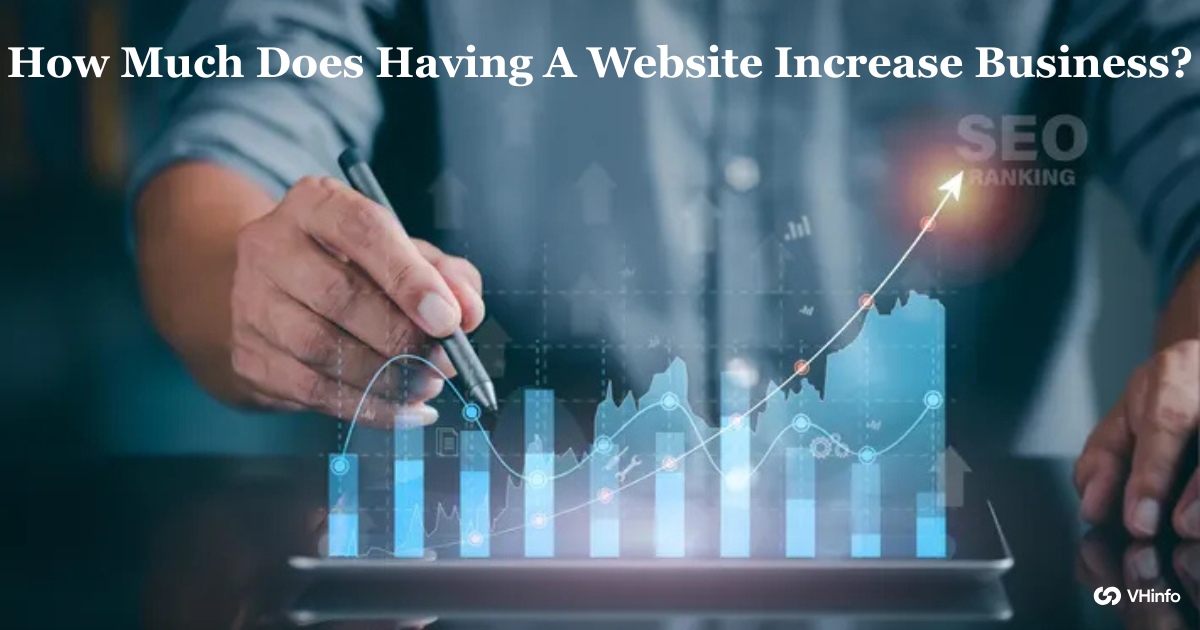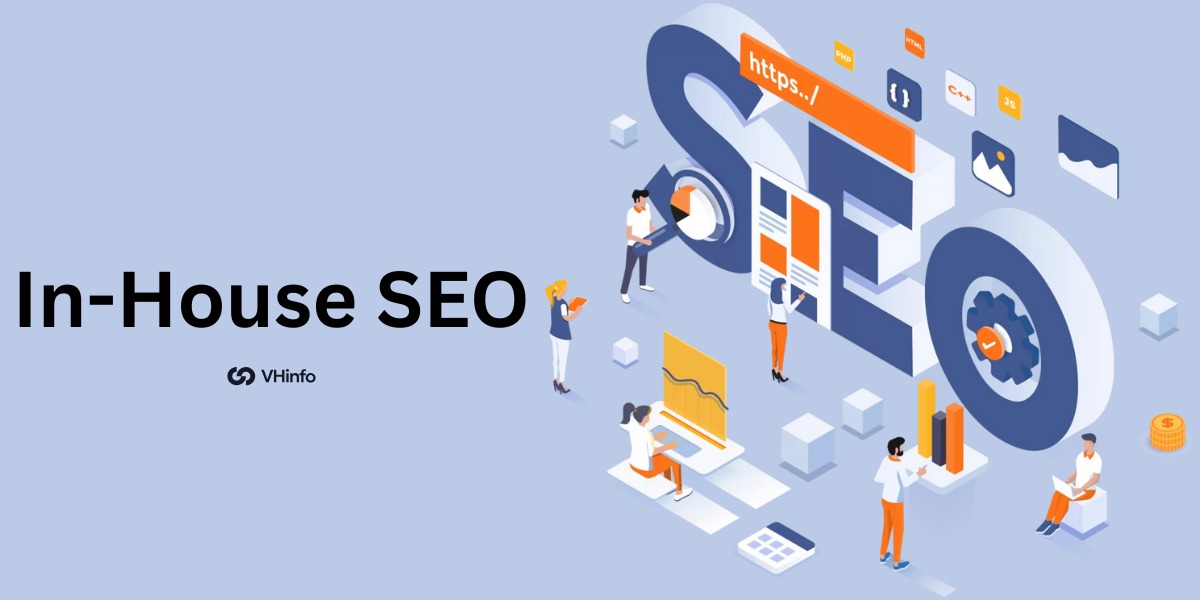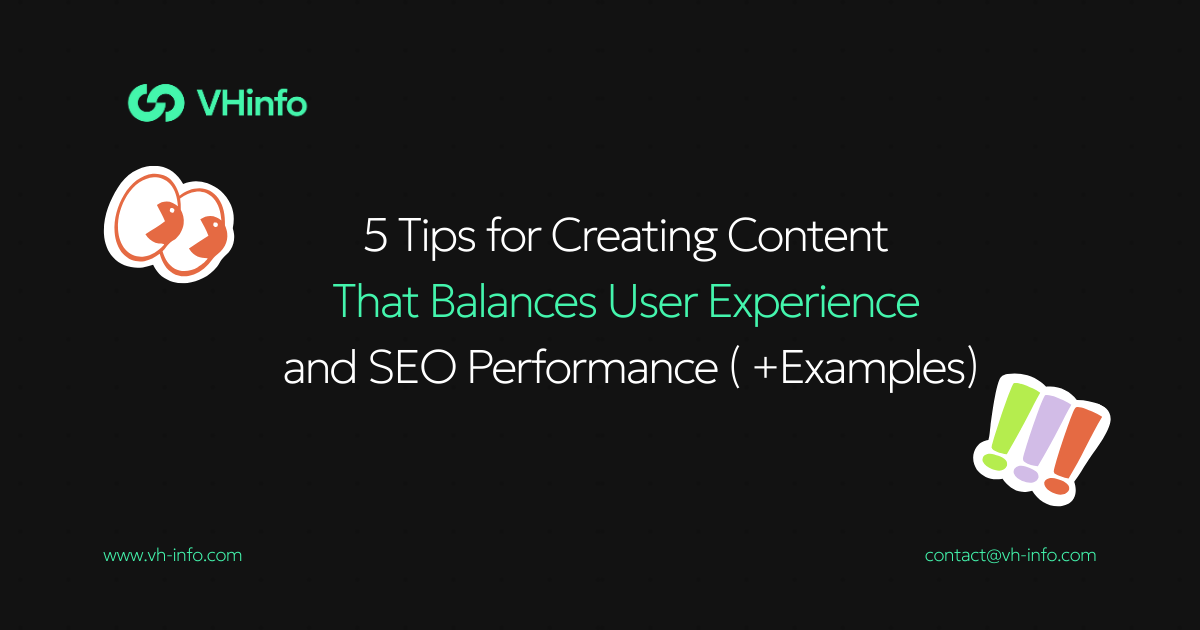A strong online presence helps small business owners reach more potential customers and boost web traffic every day. Your website goes beyond social media or Google Business listings, giving you a 24/7 online storefront where internet users can learn about your products and services. With clear web design and search engine optimization, your pages rank higher in search results on search engines like Google.
For first-time visitors, an easy-to-use site with contact forms and live chat makes a positive customer experience. By sharing relevant content and using smart marketing strategies, your small business website guides people along the customer journey from browsing to online sales.
A well-built digital presence also builds trust, shows off customer reviews, and offers top-notch customer service. Start with a clear domain name and simple navigation, and watch how your website turns clicks into loyal customers.
Does My Business Need A Website?
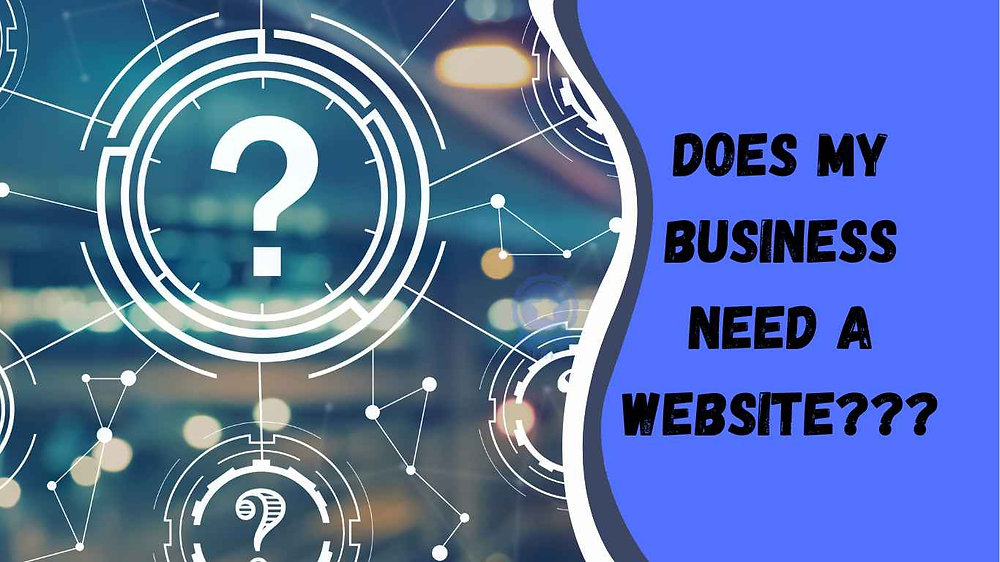
Small business owners often ask: Why website is important for small business? The benefits of having a website for your business include:
- Reach potential customers through search engines and online searches
- Establish credibility with a professional business website
- Generate referral traffic and web traffic from social media and online directories
- Showcase services, products, customer reviews, and social proof
- Provide live chat, contact forms, and a phone number for real-time customer service
Even a local business benefits: Google Business Profile and Google Maps listings link back to your website, driving foot traffic and online inquiries at any time.
How Much Does Having A Website Increase Business?

Studies show small businesses with a website grow between 15% and 50% faster than those without one. Online businesses see:
- 22% of retail sales are expected to occur online in 2024, indicating a massive opportunity for an online storefront
- Businesses with websites grow sales 30% faster than brick-and-mortar-only competitors
- A well-designed website can increase conversion rates by up to 94%
These numbers underscore that an effective website isn’t optional—it’s an excellent way to boost business growth, web traffic, and online sales.
The Impact Of A Website On Business Growth

- Increased Online Visibility and Reach: A website that is made for search engine optimization (SEO) ranks better in search results. This helps people find your business online. More than 90% of web traffic comes from organic search results. This shows why it is important to have an SEO-friendly layout and useful content on your web pages.
- Business Credibility and Professionalism: Almost 97% of people think a business’s website is more trustworthy than its social media pages. A good web design has a clear web address. It also shows the brand logo and contact details. These things build trust and show that the business is professional.
- Effective Marketing Efforts and Lead Generation: Your website is a central place for your marketing. It brings together email campaigns, social media, and paid ads. These tools help draw users to your landing pages. You can use chat features, contact forms, and other tools on your site. These help turn visitors into potential customers. They make it easier for people to buy from you and share their information.
- Showcasing Services and Products To Customers: A business website helps you show product lists and service details. You can also create landing pages and share customer reviews. Good images and videos are important too. They help keep clients interested and guide them. This improves the chances of making a sale. Having clear content is key to success. It leads to a better conversion rate overall.
- Enhancing Customer Engagement and Communication: Features like live chat and FAQ sections keep customers interested. Social media links also help to engage them. Regular updates, such as blog posts and email newsletters, create a good experience. This helps to keep loyal customers coming back. Adding social proof can also make them feel more connected.
Features To Consider When Building A Small Business Website
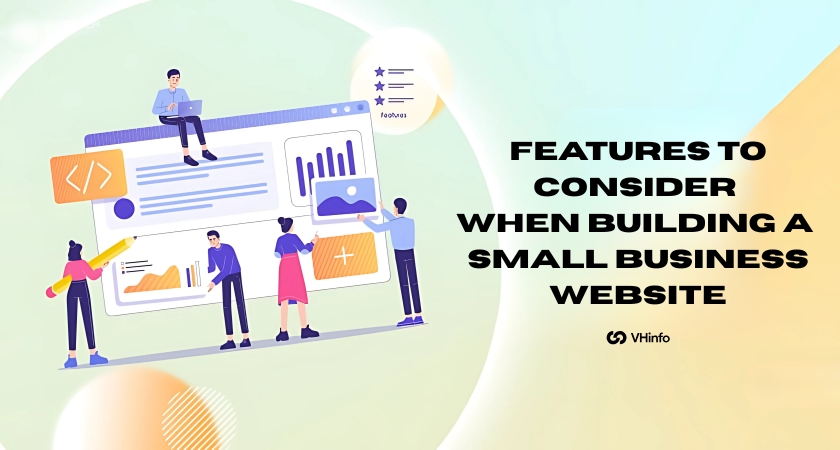
- User Experience and Navigation: Easy navigation with clear menus helps users. Fast-loading pages also improve the user experience. A simple structure allows visitors to find business details easily. This includes the address, phone number, and CSR policies. Users can find this information without getting frustrated.
- Mobile Responsiveness and Optimization: In 2024, 60% of online searches will be done on mobile devices. This makes mobile responsiveness very important. A responsive web design helps your site show up well on phones and tablets. It stops you from losing web traffic.
- SEO-Friendly Structure and Content: Use titles that have important keywords. Add meta tags and headings too. Organize your web pages in a clear way. Use H1 to H3 tags for better search results. Include links within your site to help visitors find their way. This will also make it easier for search engines to explore your site.
- On-Page Conversion Widgets: Use call-to-action buttons to guide your visitors. Add pop-ups for email marketing to grab attention. Countdown timers can create a sense of urgency. Exit-intent offers can help keep customers engaged. Widgets like live chat improve lead generation. They provide quick help to customers when they need it. This can lead to more sales and better service overall.
Key Ways A Website Boosts Business Success

An effective website can help your business grow in many ways.
- Attracting New Customers Online: A strong online presence helps people find your small business. This happens through search engines and online searches. SEO-friendly pages and good content help as well. Your site will show up higher in search results. This brings in new customers who want your products or services.
- 24/7 Availability and Convenience: Your business website is always open. Internet users can visit your site at any time. A simple web design helps customers find what they need. Contact forms and live chat allow customers to ask questions. They can also make purchases even when your office is shut.
- Showcasing Products and Services: A business website helps you show product pictures, service info, and customer reviews all in one spot. You can use landing pages and helpful content to lead visitors. This makes it simple for them to learn about what you offer. It also makes it easy for them to buy online.
Real-World Examples and Case Studies
Small Businesses That Thrived With A Website
A.R.S. Video Inc., a Florida video production company, saw a big jump in relevant leads after working on its digital presence with an SEO focus.
Through effective web design, mobile-friendly layouts, and prominent call-to-action buttons, they facilitated potential customers’ ability to locate them via search engines and reach out for services. Additionally, insightful blog posts and landing pages established them as industry specialists, enhancing their online credibility and assisting new clients in initiating their customer journey directly on their website.
Social media channels and email marketing campaigns then drove traffic back to their pages, turning casual visitors into warm leads through smart marketing strategies like live chat and contact forms.
A local bakery in a crowded market used a mix of social media ads, SEO-friendly content, and engaging blog posts to build a strong online storefront. They added customer reviews, high-quality photos, and clear “Order Now” buttons on landing pages, which made the checkout process smooth for internet users. This blend of relevant content and simple navigation led to a 35% rise in revenues and welcomed many new customers who first found them through online searches and Google Business listings.
Their digital presence became an excellent way to showcase seasonal menus, share baking tips on blog posts, and keep loyal customers coming back with email marketing and social proof widgets.
Statistics On Website Impact
Seventy-one percent of small businesses now have a website, showing how important a strong online presence is for reaching potential clients. Businesses with their own website grow revenue 15–50% faster than those without one, proving an effective website is an excellent way to boost business growth and online sales.
Ninety-four percent of people judge a company’s credibility by its web design the first time they visit, so clear user experience and relevant content are key to a positive experience.
On average, websites get 375,773 unique views per month, offering huge marketing opportunities to attract new customers through search engines and smart digital marketing strategies like SEO and email marketing.
Common Website Mistakes To Avoid For Small Businesses
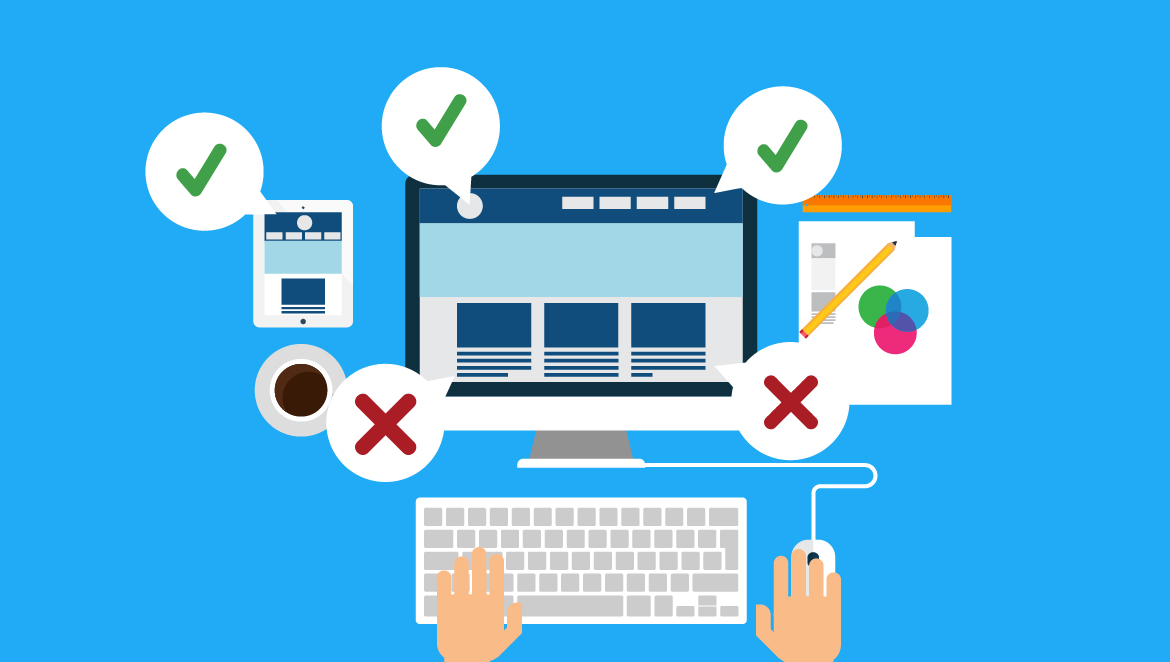
Many problems can hurt how well a small business website works.
- Not Having A Website At All: Having your website is very important. Without it, you lose a strong online presence. This means you miss out on potential customers. Many people search for services on Google and other search sites. If you only use social media or directories, it limits your web traffic. This can hurt your business growth. A website acts as your store that is open all day and night. It helps attract more customers to your business.
- Website That Works Poorly On Smartphone Or Tablet: If your web pages don’t load quickly or look good on phones or tablets, many users will leave. They may not see your products or services at all. A mobile-friendly design helps create a better experience for customers. It also helps improve your ranking in mobile search results.
- Key Business Information That Is Absent, Out-of-Date, or Hard to Find: A missing or old phone number can frustrate visitors. It may stop them from reaching out to you. A clear web design is very important. Up-to-date content also helps a lot. This includes business hours and location details. These elements guide potential clients easily. They help make the customer journey smooth and simple.
- Missing Clear Calls-to-Action (Web Visitors Don’t Know How to Take Next Steps): If you don’t have clear buttons for “Contact Us,” “Buy Now,” or “Get a Quote,” visitors may be lost. They won’t know what to do next. Adding simple tools and helpful content can change website visits into leads. This also helps increase online sales.
- Bad Content: Bad writing, unrelated topics, or too many hard words can push away readers. This can hurt your SEO. Use simple English in your writing. Include keywords that matter for your topic. Provide clear details about your services. This will help boost web traffic. It will also give value to potential customers.
- Stale Content (Failing to Update Your Website): An old blog or outdated product pages can make your site seem untrustworthy. This can turn visitors away. It is important to add new content often. You can include blog posts, customer reviews, and landing pages. Doing this helps with search engine optimization. It also keeps loyal customers interested.
- Doing Too Much: Too many offers, images, or pop-ups on your homepage can confuse visitors. This also slows down the speed of the page. It is important to focus on a simple web design. You should highlight your main services clearly. Additionally, guide users step by step on their journey. This will help make your website more effective.
- Ignoring Google Business Profile and Online Directory Listings: Not using Google Business Profile and local listings can lead to lost chances. You may miss out on local search results and map listings. When you connect your website to these tools, it improves your search visibility. This drives more local traffic to your site. It also helps new customers find your small business easily.
How to Maximize the Benefits of Your Website?

Optimizing For Search Engines (SEO)
Make your small business website easy for search engines. Use keywords in titles, headings, and text from the start.
Organize web pages with clear URLs and meta descriptions. Also, add internal links so search engines can explore every page. This helps show you in search results. Remember to speed up your site, too. You can do this by compressing images.
Use a mobile-friendly design as well. Fast sites often rank higher and keep visitors coming back.
Engaging Content and User Experience
Create simple and useful pages. Use clear headings and short paragraphs. This makes it easy for visitors to skim. They can find answers fast. Use pictures, videos, and bullet lists. These break up text and keep customers reading. Add live chat or contact forms on important pages.
This guides users through their journey. It also helps improve their experience. Regularly update your blog posts and landing pages. Use relevant content like how-to tips or customer reviews. Also, include product updates to keep visitors coming back.
Integrating Social Media and Marketing
Add social media buttons to your site. This will let visitors share your pages easily. It helps boost your online presence.
Link to your social media accounts and Google Business Profile. This can drive traffic from Facebook, Instagram, or Google Maps. It also builds trust in your business. Use email marketing tools to reach more people.
Consider using paid ads on social media, too. These ads should lead to special landing pages on your website. This joined marketing plan turns clicks into loyal customers who care about your brand.
Is A Website Worth The Investment?

A website is almost always worth the investment for small businesses. Even a simple site costing between $1,000 and $10,000 gives you a strong online presence that reaches potential customers through search engines and social media.
With clear web design and relevant content, your pages rank higher in search results, boosting web traffic and guiding visitors through the customer journey toward online sales.
Many businesses see revenue grow 15–50% faster once they have a website, and SEO efforts often deliver a return on investment well over 100% within the first year.
A website also works 24/7 as your digital storefront, offering contact forms, live chat, and helpful information to improve the customer experience. By integrating email marketing, landing pages, and on-page conversion widgets, you turn clicks into leads and loyal customers.
In simple terms, spending on a business website pays off through higher online sales, better marketing strategies, and ongoing business growth.
FAQ’s:
Does Having A Website Increase Business?
Yes. Small businesses with a website usually grow their revenue 15–50% faster than those without one. A good online presence helps customers find you easily. They can discover you through search engines and online searches.
This leads to more visitors to your site. Your website is always on, working 24/7 like a digital store. It has contact forms and live chat features. These tools help guide people during their shopping experience.
How Much Value Does A Website Add To A Business?
A good business website can increase revenue by 2.8 times. It does this by making the business easier to find online. This helps attract new customers through search results. A strong web design also makes a business look trustworthy.
75% of people decide if they can trust a business based on its website design. Additionally, websites provide marketing tools like landing pages and email marketing. These tools help create strong bonds with customers and lead to more sales.
How Much Does A Website Increase Sales For Your Business?
Online sales make up almost 19% of all trade in the U.S. This shows how important an online store is. E-commerce sites that have pages made for conversions can get 2.5–3% conversion rates. This means they turn visitors into buyers.
By showing products, customer reviews, and useful content, your site helps users buy at any time.
How Long Does It Typically Take To See An Increase In Revenue From A New Website?
Most small businesses see more web traffic and leads within 2 to 3 months. This happens after they launch a site that is good for SEO.
A full rise in revenue usually shows up in 6 to 12 months. This is true when you keep updating your content. It is also important to optimize for search engines. Using on-page tools can help guide visitors to buy.
Can A Website Still Generate Revenue For A Locally-Focused Business?
Yes. Local businesses gain from having a Google Business Profile. They also benefit from online directory listings that link to their site.
About 91% of customers go to a store after visiting its website. A site that works well on phones helps too. It should have local SEO and clear info like an address and phone number. This leads to more visitors and online questions.
Is Having A Business Website The Right Move For You?
If you want to find more customers, a website is key. It helps you build a strong online presence.
A good website can also increase your web traffic. Spending money on web design and SEO can bring good results. You may see growth of 15–50% faster than before. This can lead to better sales rates too. A business website is the first step to turn clicks into loyal buyers.
Conclusion
A business website is an excellent way to build a strong online presence and reach new customers through search engines and social media.
With clear web design, mobile responsiveness, and relevant content, your pages rank higher in search results and guide visitors through the customer journey. A well-built site works 24/7 as a digital storefront, using contact forms, live chat, and on-page conversion widgets to turn clicks into online sales.
Regular updates—like blog posts, landing pages, and customer reviews—keep your site fresh and boost web traffic. Integrating email marketing, SEO, and social media channels makes your marketing strategies even more effective.
Over time, a good website can grow revenue 15–50% faster and earn loyal customers.
Start with a clear domain name, simple navigation, and strong customer experience to watch your small business thrive online.
